Co-star, an AI-powered astrology app with hyper-personalized horoscopes, became my best friend. Co-star is unique in that it avoids being overly prescriptive or predictive, offering daily updates that read more like open-ended statements designed to encourage reflection (daily update: your body is constantly bombarded by information.)
In an attempt to find out if more people were turning more to astrology in times of crisis, and how astrologers viewed the pandemic, I sought out one of Singapore’s top astrologers, featured in the NYT Style Magazine, May Sim.

“You’re absolutely right,” May says, when I sheepishly test my hypothesis.
May says her revenue has doubled or tripled since the pandemic started.
“Astrology is a bad weather trade,” says May. “Nobody goes to an astrologer when everything is fine and dandy.”
According to May, each astrological element governs a period of around 150 – 200 years. Astrological time doesn’t map neatly into man-made divisions of numerical centuries, since planetary calculations don’t correspond to human-decided names for years. The fire period began in 1603 and ended sometime between 1802 – 1842 (where elements oscillated). Fire words include the monarchy, blacksmiths, artisans, and soldiers.
The earth period began between 1802 – 1842, and ended between 1981 – 2020. Earth words include “productivity”, “optimisation”, “investment”, and ‘efficiency”. Naturally, the earth era favours industries such as finance, construction, mining, and MNCs.
2020 marks a momentous transition into a new period: the air era. While we got a brief taste of the air period from 1981 – 2000, May says 2020 marks the transition to the air period. Air words include “inclusivity”, “equality”, “communities”, “communication”, and “environmentalism”. (Social justice folks – rejoice!)
In a seminar entitled “The Future of Work”, May explains just like how “air” is associated with flow and flexibility, the new period will be characterised by jobs that emphasise variable income, flexible working hours and job scopes, on-demand jobs, jobs that serve local communities rather than MNCs, and a greater ethos of collaboration over competition.

May says she has been telling her audience who attend her seminars to prepare for a radically different world from the one we know today. She thinks that while Singapore’s government has done a good job governing, and remains one of the best governments in the world, she suspects their very competence will also become Singapore’s downfall.
“Majority of the population has been trained to wait for the government’s initiatives. I tell people—you have to ask yourself, what are you good at? What can you contribute? Prepare for a world where there are no jobs. In this new era you have to be a self-starter in order to make a decent livelihood. The traditional corporate job, 9-5 with stable benefits and fixed career progressions, all that’s going to die out.
Or if they’re bankers, I tell them, better to pivot to new industries, invest in renewable energy and so forth. But there’s a lot of resistance. People tell me, it’s okay, there’s the job support scheme, the government won’t let our industries die out. So they’re just sitting around, waiting for retrenchment benefits, waiting for a lifeline. But this is not sustainable – the handouts won’t be coming forever.”

“The government might want to look into recognising individual abilities—the days of mass production and hyper-efficiency are over. We need more orators, bakers, artists and so forth. Our education system has not been as adept in nurturing intrinsic talent, or in encouraging diverse pathways.” (But Every School, A Good School? Maybe MOE got the astro memo.)
“In the air era, when people no longer have structures to follow, we may not have a choice in finding a way to make a living on our own terms.”
She gives the example of an accountant who made a 180 degree pivot and started baking pineapple tarts—a career switch she regrets not making earlier because she absolutely hated entering excel sheets.
May herself made the transition from an “earth” job to become a professional astrologer. After studying English Literature at the National University of Singapore, she became the General Manager of a height safety consultancy whose turnover was in the millions. She chose to turn down a lucrative career to pursue a degree in the International Academy of Astrology, and started her own firm, Selfstrology.
May now consults mostly CEOs, COOs, and directors of small and medium-sized firms. Several of May’s clients include high-level CEOs and CFOs, who turn to astrology as a means of figuring out what the future holds for the global economy, and as one of many instruments to decide if they should proceed with specific business deals.
May has also spoken for a variety of organisations such as the E2i Devan Nair Institute of Employment and Employability, the Health Sciences Authority, Walton Land Investments, and Aviva Insurance.
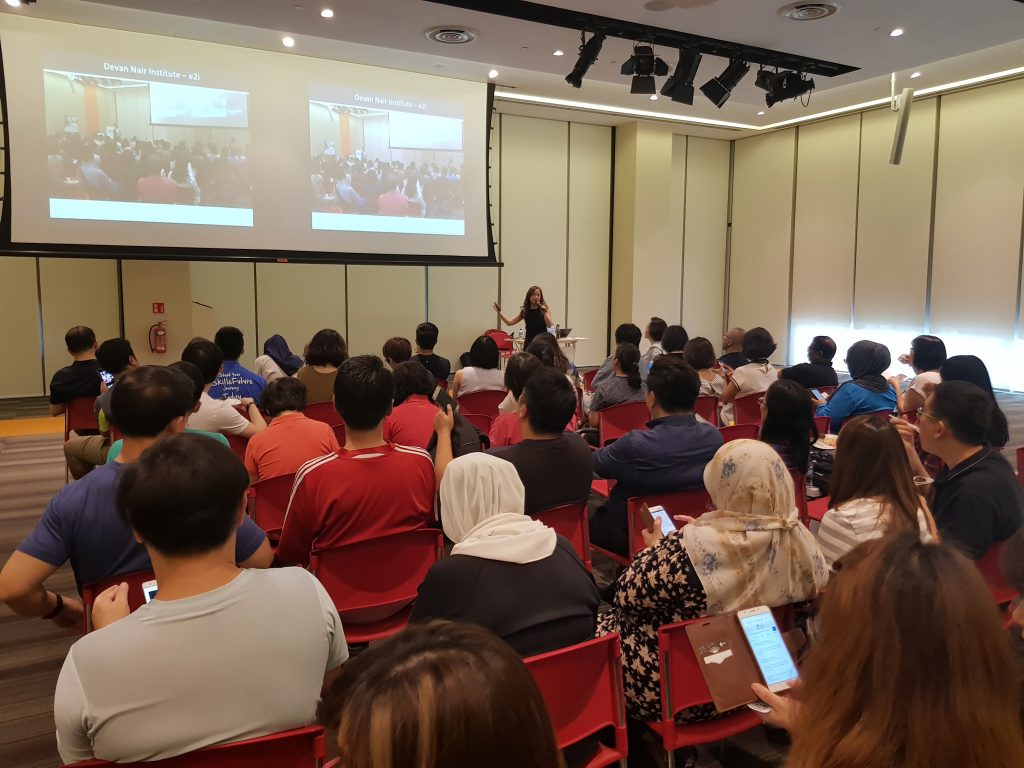
May herself draws the line at not reading someone else’s charts for her customers. “It’s an invasion of privacy,” she says firmly, and says that astrological professional associations set codes of conduct that outline such ethical standards.
May adds that much of astrological consultations is similar to counselling. A good astrologer looks at the chart, and tries to understand what methods would work. Psychological astrology tries to divine a person’s personality from their natal chart, and see whether this person needs a hard smack across the face, or if they need some hand holding.
Contemporary astrology is actually really progressive, May shares, because the concept of determinism by the stars is reframed. Rather than imagining some kind of fixed path, modern astrology sees the stars as a guide to helping the individual draw their own conclusions to make “empowered choices”.
At this point, the co-optation of progressive values in astrology, and its proclamations of a new era marked by justice and inclusivity, has me totally eating out of May’s hand.
But wait, I say. If astrology is so accurate, why didn’t prominent astrologers like Susan Miller predict the pandemic?
May cringes when I ask the question.
“Susan Miller is very gifted at translating astrology for a larger audience”, says May carefully, “but I would hesitate to say that the work I do is similar to the kinds of astrology Susan Miller is known for—writing horoscopes.”
“In fact,” says May, “I don’t encourage people to read horoscopes at all. Think about it. There are 7.2 billion people in the world, there are 12 signs. 600 million people have the same signs. Does it make sense to you that 600 million people will experience the same things?”
“In my own predictions, I told all my clients and audience members in a live event in January that 2020 would not be the great year everyone claimed it would be. In fact, everything you’re seeing now—circuit breaker, the Covid-19 outbreak – is just the beginning. My predictions tell me that the economy will be tanking—we’ll be facing a huge recession around August and September.”
May has been doing a lot more country-level predictions of late, as people are interested to hear how individual nation-states fare in this pandemic. She patiently walks me through how this is done—primarily by constructing a natal chart for each nation-state.
Singapore’s natal chart is calculated based on the date, 9th August, 1965, at 10 AM. May says astrologers take their cue from the moment of independence. For Singapore, independence is represented by the radio broadcast where Lee Kuan Yew proclaims, “I now declare singapore an independent country.”
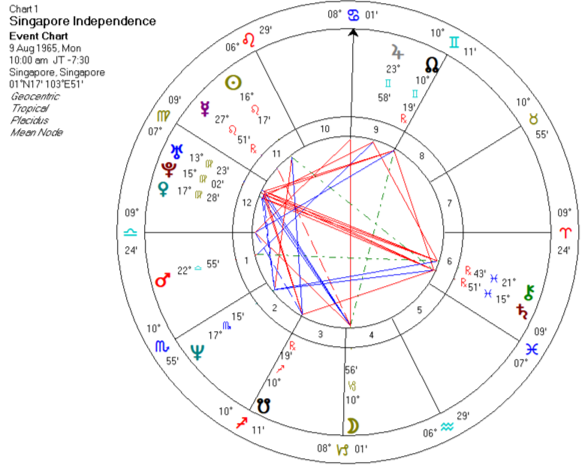
Ah, May smiles knowingly. She shares that the astrology community debates this a lot; Japan is often used as a case study. Japanese history is so long that they cannot properly pinpoint when Japan became an entity. Similarly, Chinese history is also murky, but most astrologers use 1949 as the starting point.
“The question is”, May says, “do the Chinese today still identify with the Tang Dynasty period? Or do they identify with CCP China? The point being identity is manmade when it comes to nations.” (Yes! Nation-states are social constructs!)
The emphasis on rigorous calculations based on previous data, built on complex models to make falsifiable future predictions, makes me wonder about the apparent similarities between astrology and a more recent pseudoscience: economics.
Contemporary astrology is often laughed at as mere superstition, the stuff of make-believe. It would be hard to imagine a government administrator today taking astrology seriously, or using it to guide policy decisions or political strategy. Economics on the other hand is celebrated as rational and sound, its predictions used to inform much of policy-making.
Perhaps it is worth reflecting on why we value economic predictions more than astrological ones, or fetishize particular kinds of empirical knowledge. In many ways, the work of an astrologer mirrors that of an economist – both try to make future predictions based on complex calculations.
Economics is a relatively new mode of calculation, having only emerged in the late eighteenth century as a form of political philosophy. The modern branch of “economics” as formalised as a discipline and popularised by the Chicago School—emphasising quantitative methods like econometrics and abandoning its earlier critiques of political economy—only has at best a hundred years of history.
Astrology, on the other hand, has thousands of years of history, with different schools debating different models and methods of calculations, all with falsifiable data and empirical evidence.
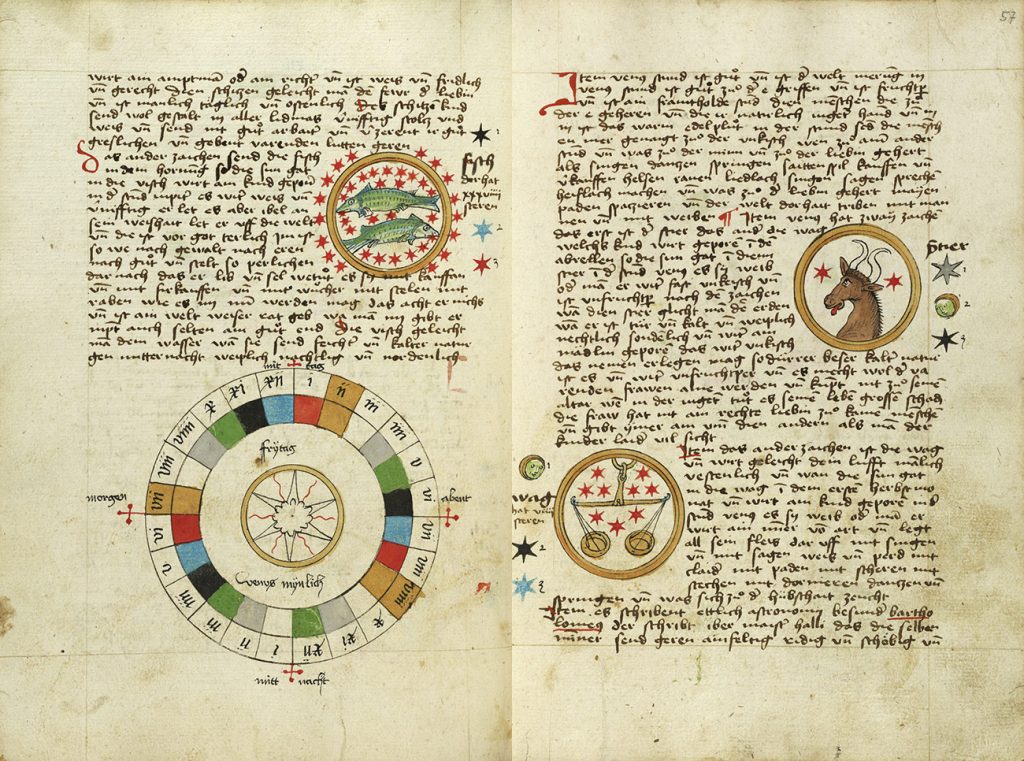
Some have tried to incorporate both. Bloomberg News hosted a weekly show dedicated to financial astrology in 2000, a branch of astrology that was previously in vogue after the 2000 financial crisis as a result of the Dotcom bubble.
During the Medieval period, astrology was wrapped up in an uneasy relationship with Christian kingdoms. At the heart of the debate was whether a belief in astrology constituted a rejection of free will and represented a kind of determinism, which contradicted the Church’s belief about the importance of human agency in deciding to believe in God, and how that act of faith could transform one’s lives.
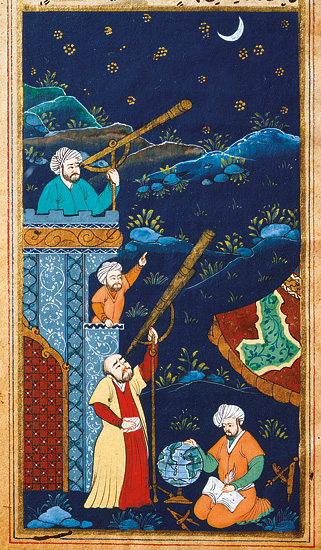
May says that to her knowledge, the Muslim scholars cherished astrological knowledge as part of their wider reverence for knowledge in all forms. Later, many of these texts were translated from Arabic back into other European languages they were originally written in.
Astrology regained some of its prominence in the Renaissance, and many of the best astrologers in sixteenth and seventeenth-century Europe were also mathematicians, physicists, theorists, and researchers. Queen Elizabeth I of England and King Henry II of France both had personal astrologers, and many prominent mathematicians and astronomers also served as court astrologers to powerful families—Johannes Kepler served the Habsburgs and Galileo Galilei served the Medici.
Intellectual sympathy for astrology died down during the Enlightenment, and political astrologers like John Partridge were swiftly satirised as puerile. Astrology survived only as cheap almanacs read by the general population, which would advise on when to take a journey or harvest a crop, or else diagnose and prescribe illnesses, or predict natural disasters. Otherwise, the intellectual class largely shunted astrology as pseudo-science, something consumed only by unthinking masses.
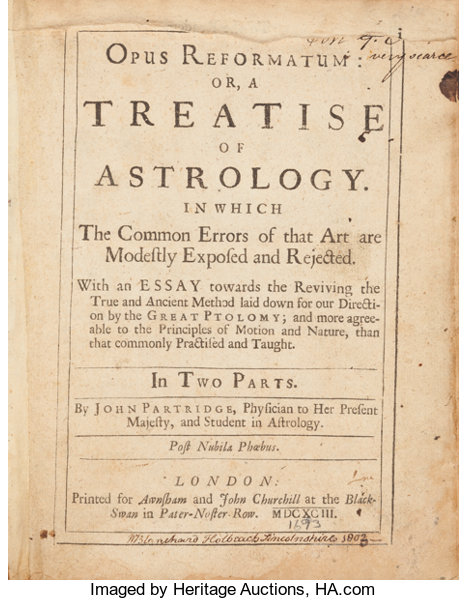
Perhaps the failures of contemporary pseudo-sciences (*cough* economics) should make us more open to alternative pseudo-sciences like astrology as a means of sense-making. Says May, “The message behind astrology is that knowledge that can help people prepare for what is coming. If anybody is in two minds about the viability of astrology, I say, you go to whatever has proven itself. Authorities, despite their best efforts, cannot speak to forecasts.”
And if/when the changes astrology predicts happens, we cannot say we haven’t been warned.






